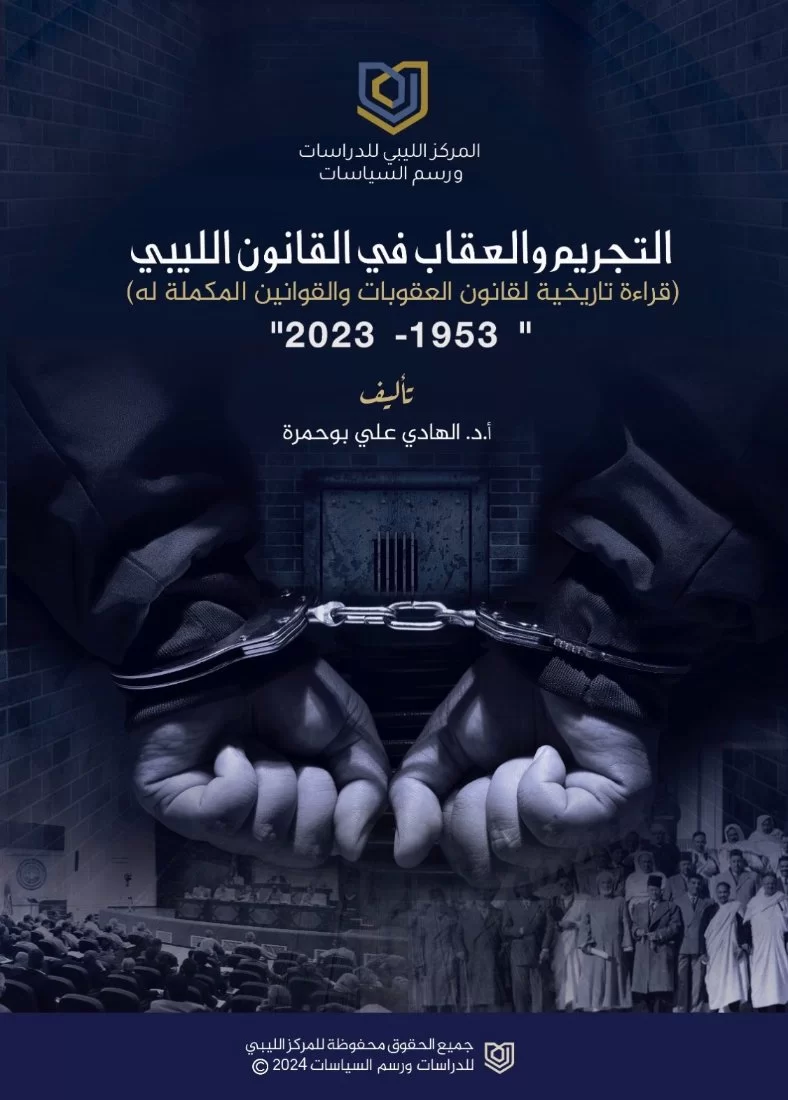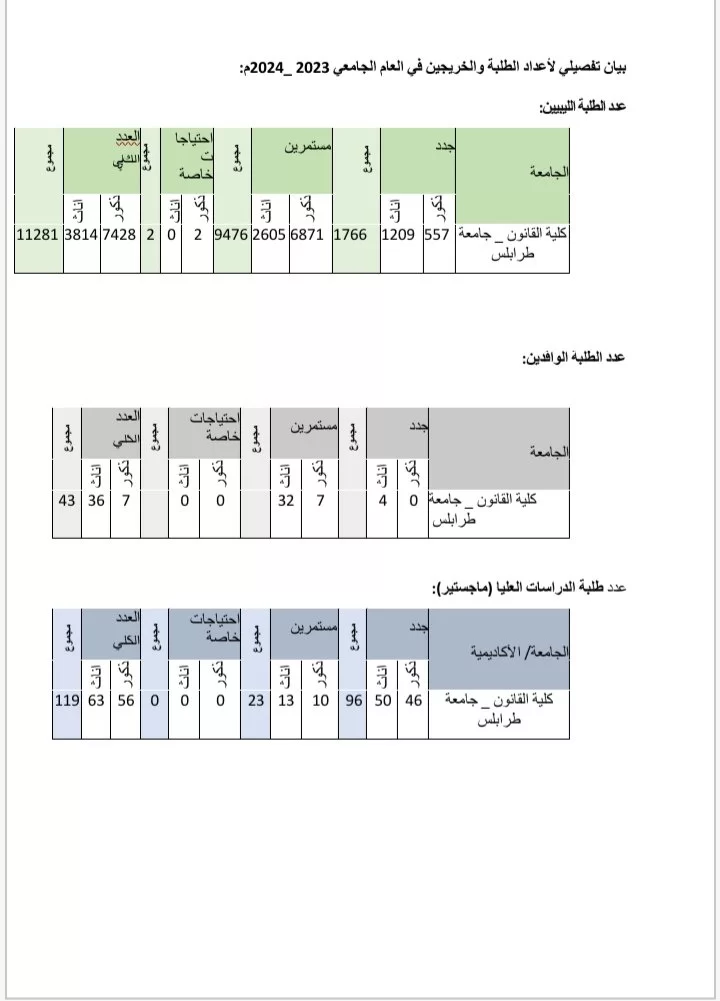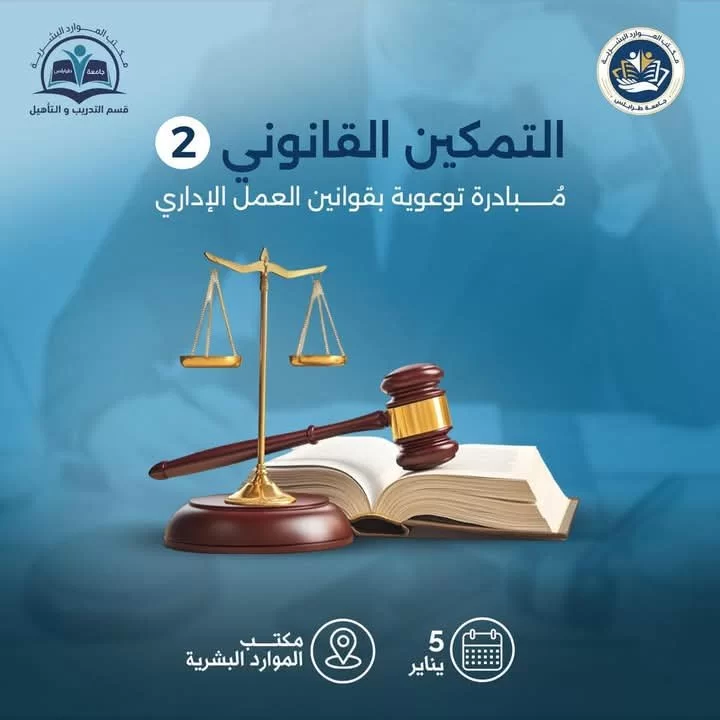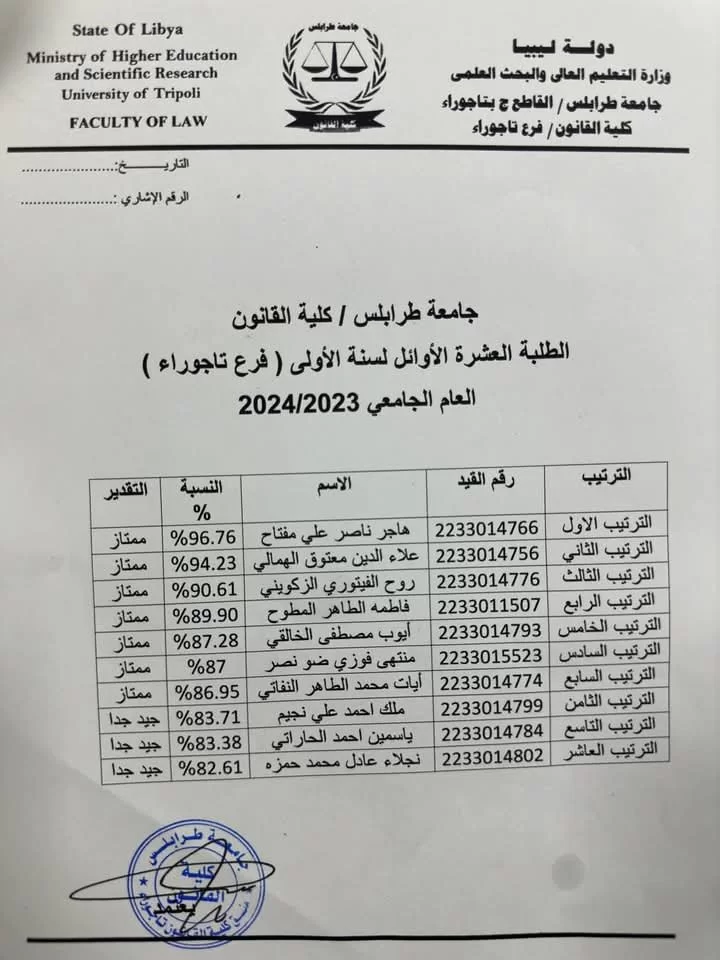Criminalization and punishment in Libyan law (a historical reading of the Penal Code and its complementary laws)
The Libyan Center for Studies and Policy Making recently published the book Criminalization and Punishment in Libyan Law (A Historical Reading of the Penal Code and Its Complementary Laws) 1953-2023 AD. By Dr. Al-Hadi Ali Bouhamra, a faculty member in the Criminal Law Department at the Faculty of Law, University of Tripoli..
The book deals with the trends of successive regimes over the course of seventy years towards the requirements of criminalization and punishment on the one hand, and between international standards in general and Libyan specificity on the other hand.
In response to the issuance of the first version of the new book of its kind in the framework of Libyan criminal jurisprudence, Dr. Al-Hadi Bouhamra wrote an introductory summary of the content of the book. The college’s website obtained a copy of it, including the following:
((From November 28, 1953, “the date of the Royal Decree issuing the Penal Code” to today, November 28, 2023, seventy years have passed since the issuance of the Libyan Penal Code, and between the two dates, amendments have occurred to it, and complementary criminalization and punishment laws have been added to it.
Through a historical reading of all of this, it is possible to monitor the tendencies of successive ruling regimes, and determine the accommodations adopted by each regime to balance the obligations of its protection, the protection of its political vision and its consequences, and the requirements of criminalization and punishment on the one hand, and between international standards in general and Libyan specificity on the other hand. Through this, it is also possible to consider the political, social and economic considerations behind the punitive texts and their amendments. This helps researchers in general to diagnose the crises that Libyan society has experienced, and helps jurists in particular to evaluate the criminal justice system and the reasons for its strength and weakness, clarity and ambiguity, or consistency and contradiction, and what it should be like in the future.
Mr. Dr. Al-Hadi Bouhamra))..







Comments